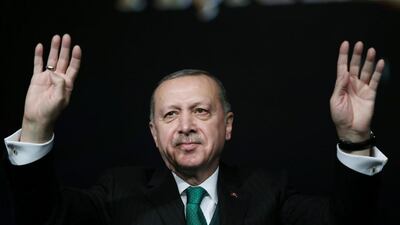Turkish warplanes have launched a new wave of bombing of Kurdish militia targets in Syria’s Afrin region, the military said on Friday, and a monitoring group said the strikes killed seven fighters and two civilians.
The local government in Afrin accused Turkey of creating a “humanitarian crisis”, killing at least 160 people and displacing tens of thousands since the its offensive began three weeks ago. Ankara has denied such charges.
Turkey’s air and ground campaign in northwest Syria - “Operation Olive Branch” - against the Kurdish YPG militia has opened a new front in Syria’s multi-sided war and further strained relations with NATO ally Washington.
The air strikes destroyed 19 targets including ammunition depots, shelters and gun positions, the armed forces said in a statement without specifying when they were conducted. The raids began at midnight, state-run Anadolu news agency said.
The raids killed seven YPG fighters and two civilians, according to the Syrian Observatory for Human Rights, a British-based group that monitors the war.
Separately, a soldier was killed in the southeastern province of Hakkari at the border with Iraq, in a rocket attack by Kurdistan Workers’ Party (PKK) militants, the Turkish military said in a statement.
A Kurdish official and top member of Afrin’s civil administration, Hevi Mustafa, said the Turkish offensive had killed 160 people, including 26 children and 17 women, so far. The attacks have displaced around 60,000 people, she added.
“This has created a humanitarian crisis, because the capacities of the region are not enough to meet the needs of this massive displacement,” she told a news conference.
The latest strikes are the first by the Turkish air force in nearly a week. Turkey had halted strikes as Russia worked on its air defence system after Syrian anti-government insurgents shot down a Russian warplane elsewhere in Syria on Feb. 3, Turkey’s Hurriyet newspaper reported.
Turkish President Tayyip Erdogan and Russian President Vladimir Putin spoke by telephone on Thursday and agreed to strengthen military and security service coordination in Syria, according to the Kremlin.
Since the Syrian conflict erupted in 2011, Syrian Kurdish forces and their allies have set up three autonomous cantons in the north, including Afrin.
Their territory has expanded since they joined forces with the United States to fight Islamic State militants - although Washington opposes the Kurds’ autonomy plans, as does Syrian President Bashar al-Assad’s government.
U.S. support for the Kurdish-led forces has infuriated Turkey, which views growing Kurdish power as a security threat along its frontier. Ankara sees the YPG as an extension of the outlawed PKK, which has waged a three-decade-long insurgency in Turkey’s mainly Kurdish southeast.

